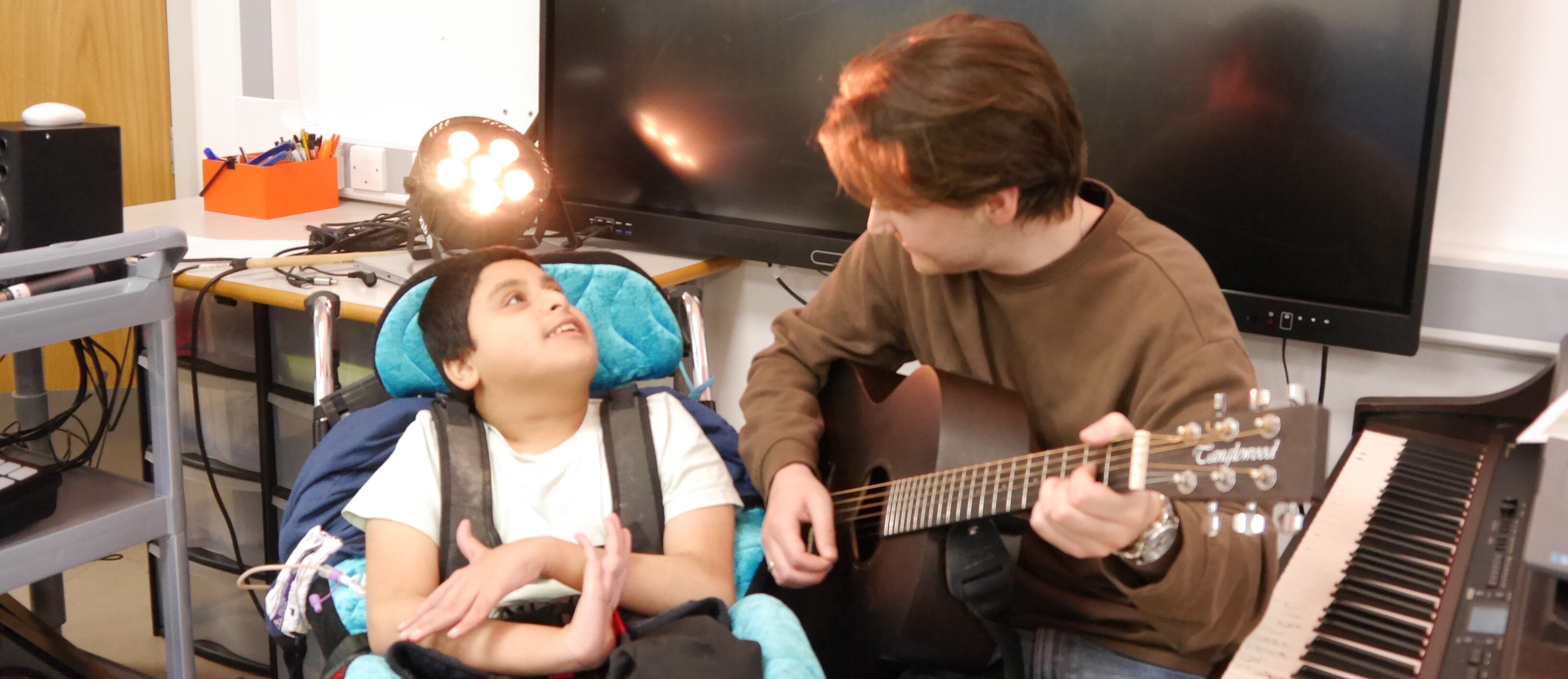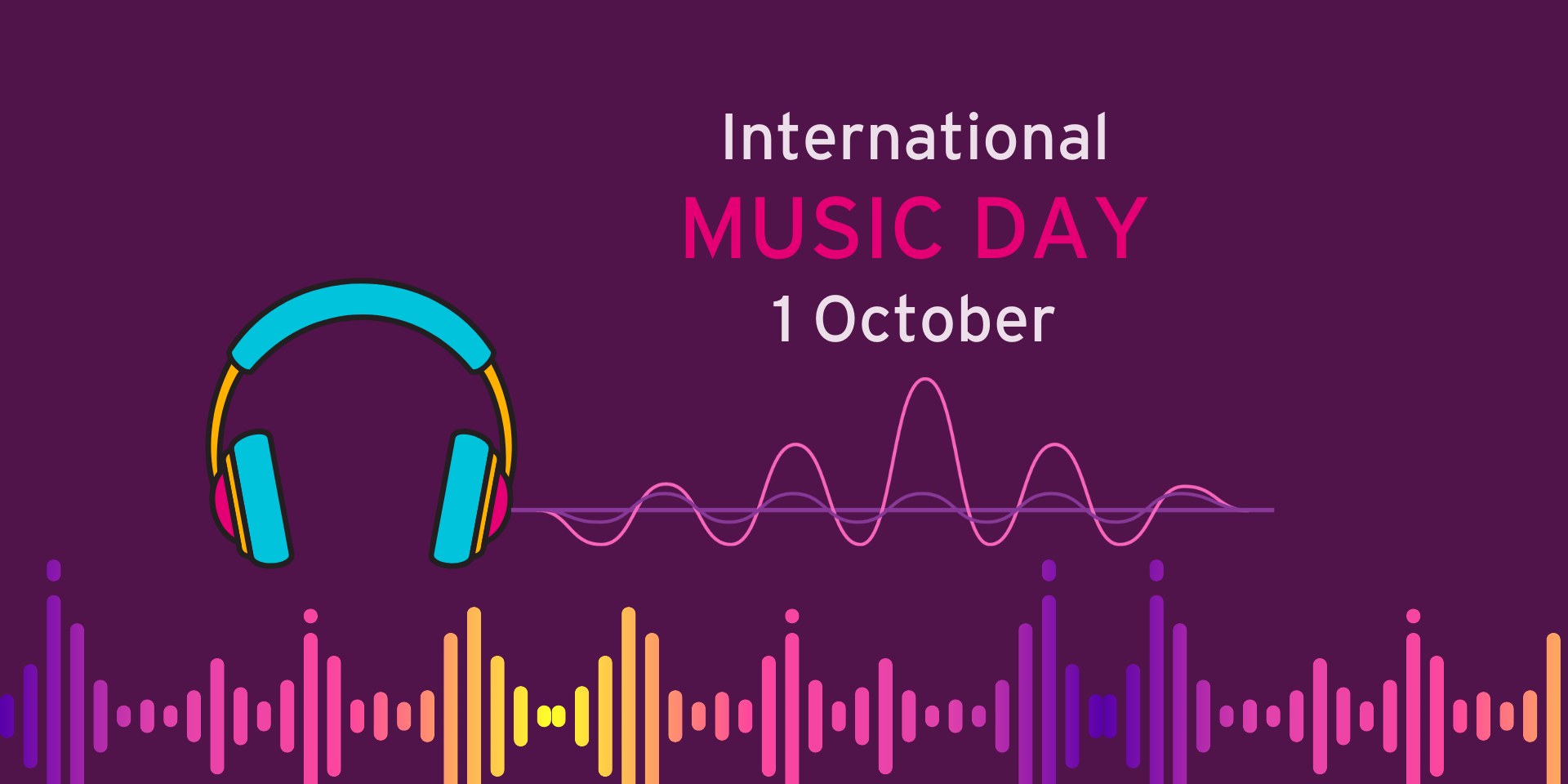
Oak Field School - finally recognition for our pupils’ musical achievements!
BY: Guest Writer
10 May 2024
Today we are thrilled to share a blog post from one of the centres running our innovative, fully-accessible, inclusive music assessments, Awards and Certificates in Musical Development. Jack Goode from Oak Field School in Nottingham share a bit about how they deliver the qualifications and the impact they have had on their students.
Ever since I began teaching Music at Oak Field School, I have been searching for accreditation that is appropriate for learners with complex needs, including those with Severe or Profound and Multiple Learning Difficulties. It was for this reason that I was incredibly excited by the announcement in 2022 that Trinity College London would be launching inclusive music qualifications. Before the Awards and Certificates in Musical Development, we as a school were only able to offer Arts Award and some units of OCR’s Cambridge Technicals as part of our music accreditation provision. Whilst these qualifications could be adapted to make them accessible for some of our students, they hadn’t been designed with inclusivity at the core.
To deliver the Awards and Certificates in Music Development at Oak Field, I requested some allocated time to spend 1-to-1 with a handful of pupils. Each session I have with a pupil is 15 minutes long which compliments the 45+ minutes a week that I see them for their whole-class music lessons. The approach to the sessions is very child-focused, with the pupil taking the lead on the instruments and repertoire they would like to explore.
As a school, we already use Sounds of Intent (SOI) as our primary music assessment framework (the qualifications are mapped to the SOI framework, levels 2-6), so it was easy to see which awards would be appropriate for the pupils. Our learners are currently working between Sounds of Intent levels 1 - 5. However, most of our pupils sit somewhere between levels 2 and 4. Last year I entered 12 pupils for Entry Levels 1, 2 and 3 of Awards and Certificates in Musical Development. This year, I hope also to enter some of our learners working at level 5 for the Level 1 certificate.
What we do at the different levels
For the Entry Level 1 award, the activities are very much based on exploring different sounds and seeing what types of sounds are the most engaging to the pupil. For some, a clear favourite has been the loud sound of a gong, whereas others have responded most to gentle plucks of a guitar or arpeggiated synthesisers. Simple activities can then be designed to encourage the pupils to create these sounds themselves to cover the Proactive and Interactive domains (you can find out more about these in the qualification specification).
For Entry Level 2, it’s all about patterns. Examples of the patterns I look for include responding to a steady beat, an increase/decrease in tempo or a change in dynamics for the Reactive domain. Again, once a response to certain patterns in sound has been discovered, activities to support the pupil to make these patterns themselves can be devised to meet the criteria of the other domains.
When it comes to Entry Level 3, the focus shifts to advancing these patterns into repeatable chunks of sound or ‘motifs’. In my experience, dramatic pieces work best for this. A clear favourite for many pupils is the Jaws theme with its simple yet effective semitonal motif. Another is the opening of Beethoven’s 5th Symphony. When recreating these motifs I let the pupil choose whether to explore them using their voice, keyboard or percussion in call and response with me.
Evidence and moderation
The main consideration in delivering these qualifications has been the collection of evidence. You never know when a student might demonstrate a vital piece of evidence towards the assessment criteria so it’s tempting to record everything. Whilst it is only necessary to have a short video demonstrating each of the three domains, scrolling through hours of footage to find those perfect moments to showcase will make assessment more challenging. My top tip is to keep organised and on top of all the recordings that take place each week, cropping the files down so that only the best examples of work are left to choose from. I also use written assessment sheets to record which criteria has been met on which date.
When the time came for moderation, I was able to send the work of students whom I was confident had met the criteria to achieve the award, as well as some that I wasn’t quite so sure about, to see if my and the moderator's thoughts lined up. Luckily, everyone passed the awards they were entered for which I was very pleased about. The process was simple as there were no huge physical folders of work to send off, just a simple assessment document to support the short video files that demonstrated the pupils’ work sent via a OneDrive link, and that was it! The feedback we got was really positive and reassured me of my understanding of the SOI framework and its relevance to my pupils.
In terms of the impact of delivering Awards and Certificates in Musical Development, I have seen a huge increase in the musicality and self-confidence of the pupils I have been working with. Some pupils have unlocked skills that may have been overlooked in group music lessons. Although we are waiting until the end of this academic year to present the certificates, I know that having their musical achievements officially recognised will mean the world to these pupils.
For a limited time period, Trinity is waiving the centre validation fee, providing a saving of £300 / €350. To find out more about Trinity’s Awards and Certificates in Musical Development, including how you can use the National Sounds of Intent Centre to carry out assessments on your behalf, please visit https://www.trinitycollege.com/musicaldevelopment
Related posts
BY: Natalie Christopher
BY: Guest Writer



.png)
Comments & Replies